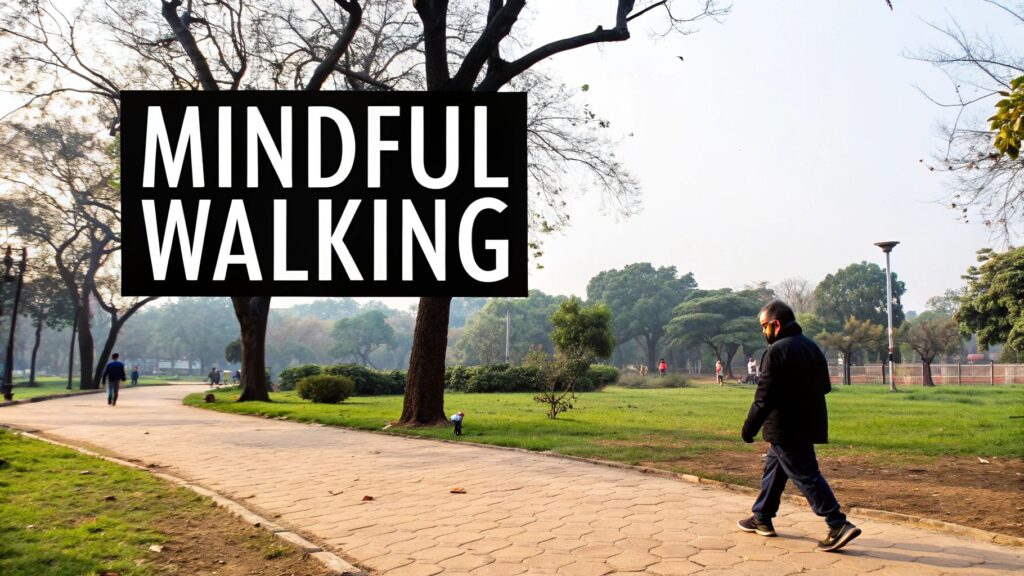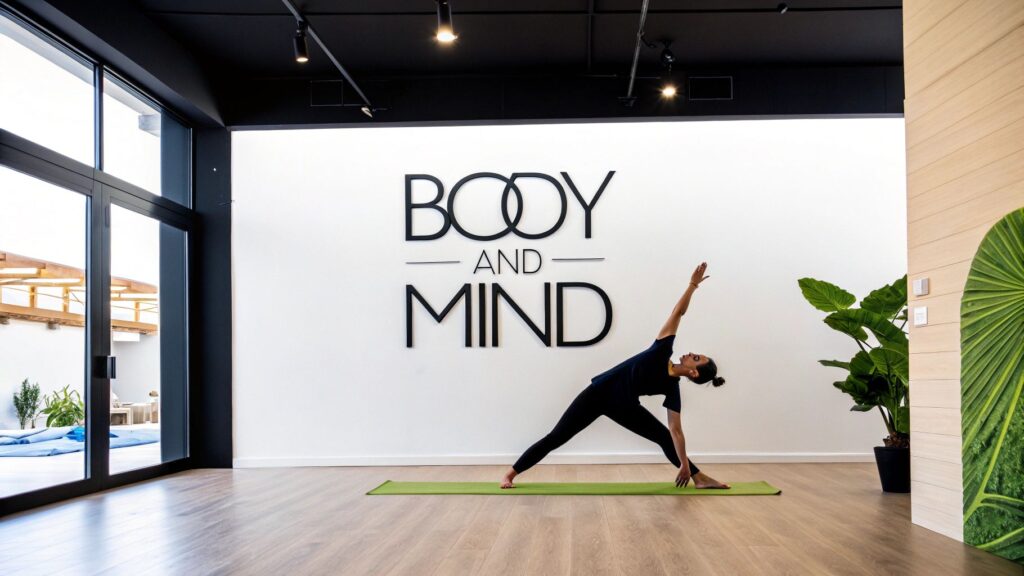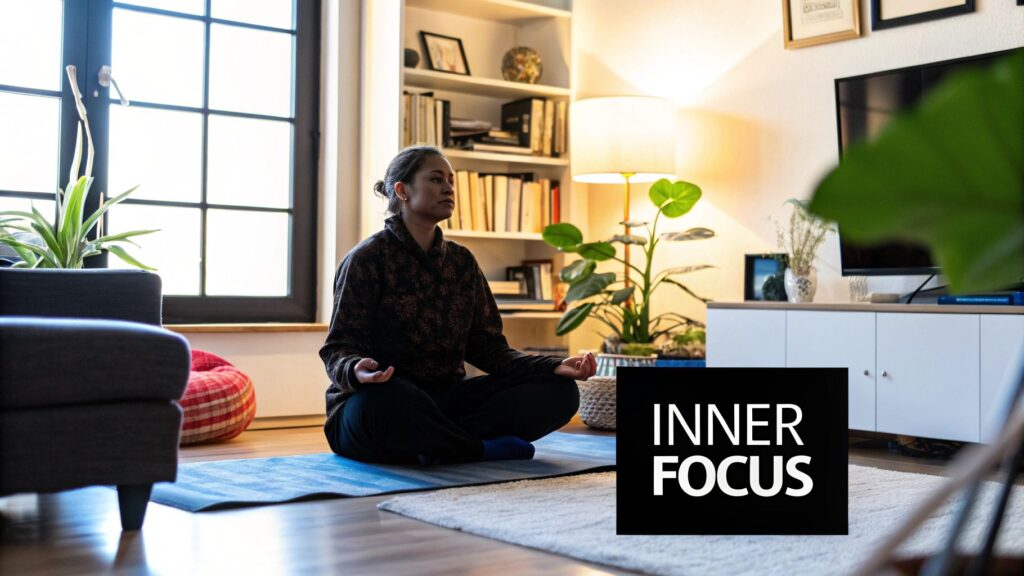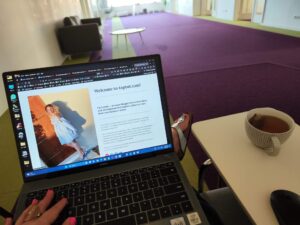Mental clarity represents the ability to think very clearly and keep your focus sharp. Basic activities such as key location and schedule management become difficult when mental fog blocks clarity. The fogged-up state of your mind influences your everyday decisions as well as your emotional responses.
What is Mental Clarity?
Mental clarity goes beyond just having a clear head. It’s a state of peak mental performance that includes:
- Sharp focus: The ability to concentrate deeply without getting distracted
- Quick thinking: Processing information and making decisions efficiently
- Strong memory: Easily remembering essential details and experiences
- Emotional balance: Managing your feelings and reactions effectively
When these elements work together, you experience mental sharpness and confidence. This allows you to handle challenges smoothly and stay productive even when unexpected issues arise.
The Importance of Mental Clarity for Entrepreneurs

For entrepreneurs, mental performance directly impacts business success. Having mental clarity helps with:
- Better decisions: Analyzing situations objectively to make smart choices
- Higher productivity: Getting more done in less time through improved focus
- Creative solutions: Finding innovative ways to solve problems
- Stress resilience: Staying composed under pressure and bouncing back from setbacks
Depression gave me firsthand experience which showed me how essential mental clarity becomes for daily life. Targeted exercises enabled me to gain control over my mental state which proved highly effective. I regained my concentration and succeeded in reaching my objectives while overcoming business hurdles better through this experience.
The experience revealed to me that mental well-being should take precedence for achieving success. The following sections detail chosen exercises for mental clarity achievement and maintenance.
The Exercise-Mental Clarity Connection: Your Brain’s Natural Reset Button

Physical exercise provides benefits beyond muscle development because it represents an exceptional method for enhancing mental clarity as well as cognitive ability. The connection between exercise and mental clarity exists because of the body’s chemical processes in the brain. Physical exercise triggers endorphins which enhance mood while reducing pain sensations. Such natural brain events function as mental refreshment which both clears confusion and enhances mental clarity.
How Exercise Transforms Your Brain?
Doing physical exercise produces lasting physical alterations in the way your brain functions and its structural components. Repetitive physical exercise triggers neurogenesis by creating new brain cells that focus mainly on the hippocampus which rules learning and memory processing. Exercise raises the quantity of blood flowing to the brain which delivers vital oxygen and nourishing substances that enable enhanced cognitive abilities. New brain structures resulting from exercise appear as improved mental focus and better memory and sharper cognitive abilities in your everyday life.
The Power of Movement for Mental Wellbeing
Scientific studies have proven exercise produces considerable mental health advantages. Research demonstrates that physical activity proves better than many standard treatments for dealing with depression and anxiety.
A research paper published in the British Journal of Sports Medicine demonstrates that exercise provides 50% greater benefits to mental health symptoms than counseling methods and typical medications. The complete research results are available for viewing at this location.
The importance of exercise in managing depression is personal for me because it served as a critical component for overcoming my depression issues.
Different Movements, Different Benefits
Exercise includes different modalities which deliver specific mental clarity advantages to practitioners. Brisk swimming and running enhance brain performance because they enhance cardiovascular health. The practice of performing strength exercises enhances mood quality and lowers stress hormone levels throughout the body.
Yoga along with tai chi helps people achieve inner calm together with focused attention. Selecting multiple types of exercise allows you to discover activities that fit your mental needs and daily schedule thus enabling you to develop reliable exercise routines which boost mental wellness.
Mind-Body Exercises: How Movement Enhances Mental Performance
Physical activity has a powerful impact on cognitive function. In this section, we’ll explore specific movement practices that can sharpen your mental focus and clarity.
The Practice of Mindful Movement
Mindful movement involves paying close attention to physical sensations as you move your body. This focused awareness helps quiet mental chatter and creates a sense of calm. A simple mindful walk becomes a mental clarity exercise when you notice the feeling of your feet touching the ground, the air on your skin, and the rhythm of your breath.
Ancient Wisdom: Tai Chi and Qigong
Tai chi and qigong are Chinese practices that blend gentle flowing movements with deep breathing and meditation. Research shows these exercises improve balance, reduce stress levels, and boost cognitive abilities. The measured movements combined with focused breathing create a moving meditation that enhances mental focus.
Simple Ways to Start Mind-Body Training
Here are practical tips for adding mind-body exercises to your daily routine:
- Start small: Begin with just 5-10 minutes of mindful walking or tai chi. Build up gradually as it feels comfortable.
- Find your space: Choose a quiet area with minimal distractions – a park, empty room, or backyard works well.
- Follow your breath: Notice your breathing pattern as you move. Deep, steady breaths enhance the calming effects.
- Stay patient: Your mind will wander at first – this is normal. Just gently return focus to your movements and breath.
- Listen to signals: Pay attention to how your body feels and adjust intensity accordingly.
- Try different styles: Sample various practices like yoga or Pilates until you find what works best for you.
Regular physical activity plays a key role in brain health. Studies show active people can lower their risk of cognitive decline by 38%. Learn more about exercise and brain function here. By combining movement with mindful awareness, you can experience greater mental clarity and emotional balance in daily life. In the next section, we’ll explore how to create an exercise plan tailored to boost your cognitive performance.
Designing Your Optimal Exercise Blueprint

Exercise transforms into a beneficial mental clarity tactic which differs from its traditional status as exhausting work. Your exercise schedule must support both physical and mental functions otherwise it will work against your body. Achieving success demands proper knowledge about the coordination between challenging efforts and recovery periods.
Balancing Intensity and Recovery
Your exercise strategy needs effective gradual progression just like all successful plans. Your body will become tired and your thinking will become hazy when you exercise intensely without proper rest. HIIT provides remarkable performance enhancements yet performing exclusively intense exercises proves unfavorable. To promote body and mental recovery between strenuous workouts include yoga or walking as gentle exercise alternatives.
Combining Exercises for Optimal Mental State
The mental effects vary depending on what type of exercise you perform. Thoughtful selection of different exercise movements will lead to maximum mental advantages. Your mental benefits will increase by doing a morning walk for focus followed by evening yoga for relaxation. Try multiple workout combinations until you discover the ones that fit your agenda and requirements.
Creating a Realistic and Flexible Schedule
Regular exercise is vital for mental clarity, but life often disrupts rigid schedules. Research published by Yale Medicine found that exercising for 45 minutes three to five times weekly provided optimal mental health benefits, with participants reporting 1.5 fewer days of poor mental health monthly. Learn more about this research here. The key is building flexibility into your routine:
- Limited time? Split your workout into shorter segments throughout the day
- Feeling overwhelmed? Choose calming activities like yoga or nature walks
- Low energy? Opt for light movement instead of pushing too hard
Preventing Burnout and Overtraining
Workout days hold equal importance to rest days within a physical training routine. Your muscles together with your mind require rest to restore energy levels. The body indicates recovery time through persistent fatigue along with persistent muscle soreness.
Both good nutrition and restful sleep allow your body to repair itself better while building a sustainable plan which produces mental clarity without stress.
Cognitive Enhancement: Training Your Brain for Peak Performance
The development of mental skills through training provides equal performance enhancement benefits which parallel the power of physical exercise to develop bodily strength.
Meditation alongside brain games provides mental training that fortifies focus and mental stability which proves essential for achievement in life according to my experience battling depression.
Mindfulness Practices for Enhanced Focus
Mindfulness exists when you focus your attention completely on the present time while refraining from making negative evaluations. A regular mindfulness practice develops similar to workout routines enables stronger mental concentration while quieting distractions and improving emotional control.
The skills offer maximum benefit during times of extreme work stress.
- Meditation: Start with just 5-10 minutes daily in a quiet space, focusing on your breath. Small consistent practice makes a difference.
- Mindful breathing: Take quick breaks during your day to notice your breath. This simple reset helps restore mental clarity.
- Body scan: Move your attention systematically through your body, observing physical sensations. This grounds you in the present moment.
Cognitive Training Games: Sharpening Your Mind
Brain training games target specific mental abilities like memory and processing speed. While not all games provide benefits, certain ones can boost real cognitive skills. Games requiring rapid decisions help improve problem-solving and reaction times.
- Dual N-Back: Remember sequences to build working memory and attention.
- Lumosity: A science-based platform with diverse games for different mental skills.
- Elevate: Personalized training focused on communication and analytical thinking.
Measuring Your Progress and Adapting Your Approach
Track your results and adjust your mental training based on what works best for you. Start small and build gradually – if meditation feels challenging, begin with 2-minute sessions and slowly increase duration.
- Daily journaling: Write about your experience with different exercises and note which ones help you feel most clear and focused.
- Mood tracking: Monitor your mental state throughout each day to spot patterns in how exercises affect you.
- Regular assessment: Use simple cognitive tests to measure improvements in areas like memory and concentration.
Combining mindfulness, brain games, and progress tracking creates an effective system for mental clarity and peak cognitive function. This balanced approach helps you handle intense mental demands while maintaining focus and emotional balance.
Building Your Personal Mental Clarity System

Creating an effective system for mental clarity requires establishing daily practices that blend physical and mental exercises. This section provides practical guidance and real examples to help you develop a personalized routine that works for you.
Combining Physical and Cognitive Exercises
A strong mental clarity practice needs both physical and mental components working together. For example, start your morning with a 15-minute walk followed by 5 minutes of meditation. Later in the day, gentle movement like tai chi helps reduce stress and improves sleep quality. This balanced approach targets both the body and mind.
Adapting Your Practice to Life’s Challenges
Your mental clarity routine should be flexible enough to handle life’s ups and downs. Having options for different scenarios is essential:
- Short version (5-10 minutes): Quick body scan or brief meditation
- Medium version (15-20 minutes): Light exercise plus mindfulness practice
- Long version (30+ minutes): Full workout and extended meditation
On busy days, even a brief practice is better than nothing at all.
Troubleshooting and Progress Tracking

Building new habits takes patience. When you hit roadblocks, try these approaches:
- Switch the timing of practices if the current schedule isn’t working
- Experiment with guided versus silent meditation
- Keep a simple journal to track how different exercises affect your mental state
- Note which combinations of activities give you the best results
The insights from tracking help you refine your routine over time.
Sample Mental Clarity Schedules
Here are two example schedules showing how to integrate mental clarity practices:
| Time of Day | Monday | Tuesday | Wednesday | Thursday | Friday | Saturday |
|---|---|---|---|---|---|---|
| Morning | 20-minute brisk walk, 10-minute meditation | 15-minute yoga flow, 5-minute journaling | Quick body scan (5 minutes) | 10-minute meditation | 15-minute walk outdoors | Gentle stretching (10 minutes) |
| Afternoon | Mindful lunch break (10 minutes) | Short walk outdoors (15 minutes) | Brain training game (10 minutes) | Brain training game (15 minutes) | Mindful lunch break | Free time/activity of choice |
| Evening | Tai chi or gentle stretching (20 minutes) | Restorative yoga (15 minutes) | Reading or quiet reflection (30 minutes) | Restorative yoga | Tai chi or gentle stretching | Relaxation practice (e.g., warm bath, reading) |
These schedules serve as starting points – adjust them based on your needs and lifestyle. Remember that building mental clarity is an ongoing process. You’ll develop greater focus and emotional balance over time by combining movement with mental exercises and adapting your practice as needed.
Are you ready to improve your mental clarity and productivity? Lorelei Web offers resources and strategies designed specifically for entrepreneurs with ADD. Visit our website to learn how we can help you achieve your business goals.

Lorelei has been an online entrepreneur, marketer and writer since 2006. Her biggest passion is WordPress, which is why she switched to being a full-time blogger 20 years ago and hasn’t looked back since. With so many years of experience behind her, she is an expert in copywriting, SEO, marketing and business strategies.






